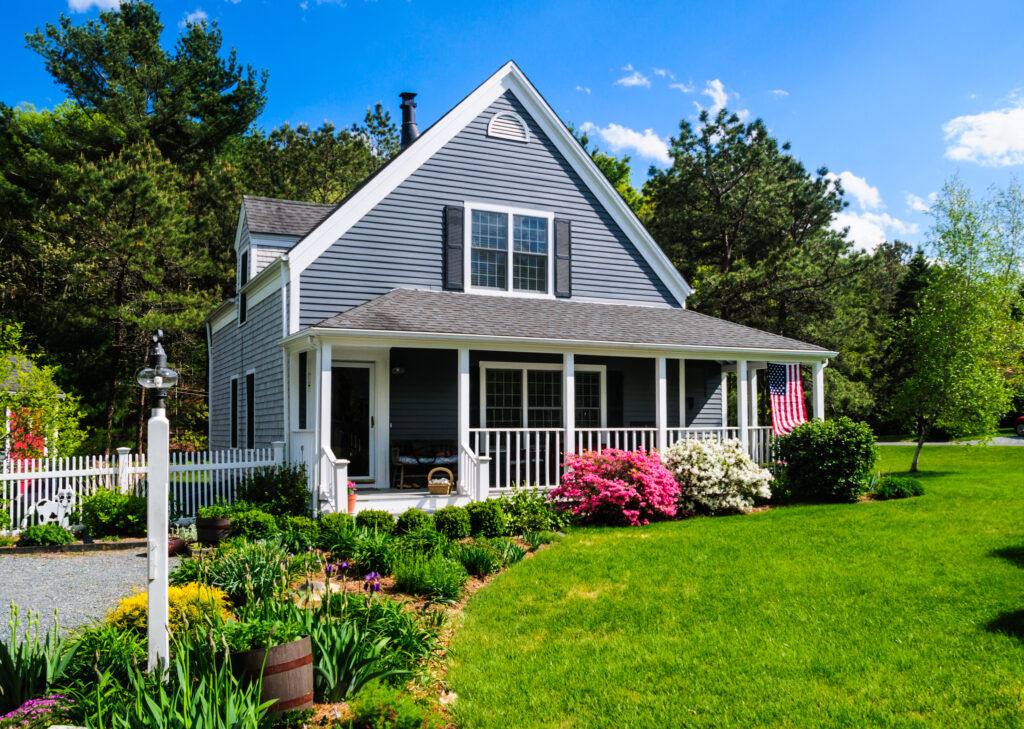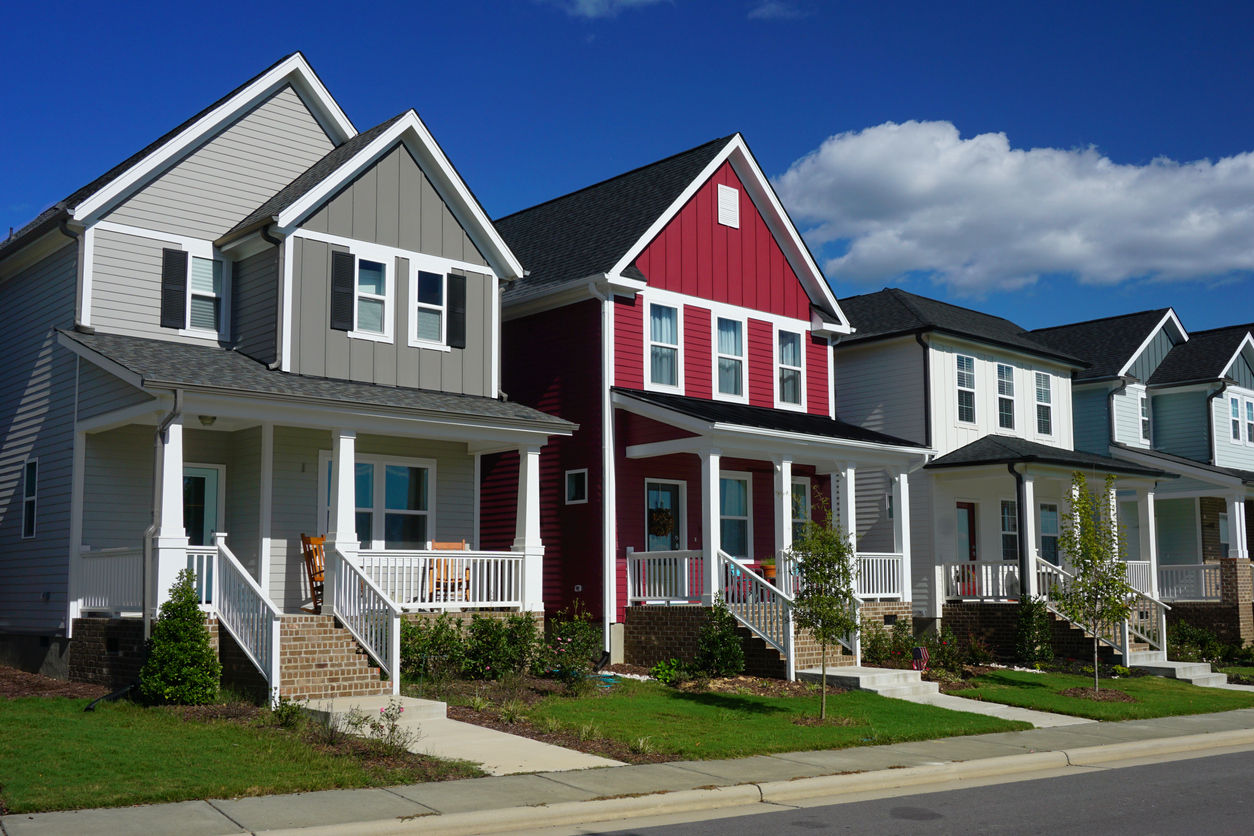The Best (and Worst) Time To Sell Your Home
Click here to browse our Real Estate Agent Directory and contact top-rated agents in your area!
Yes, there is a best time to sell your house — and a worst time, too.
Home prices and selling times vary by season, month, and even day of the week. If you want to get the best possible price for your home, here’s what you need to know.

Bottom Line: The Best and Worst Month To Sell a Home
June is usually the best month to sell a house. It’s when you’re most likely to reach the most potential buyers and get a price above market value. As a result, on average nationwide, June has one of the highest median sale prices and the most sales overall.
The school year has ended, and the summer home shoppers have started their search in earnest. Many hope to find a place quickly to move in before the kids start school. And because the dog days of August haven’t hit yet, it’s the best time to put a house on the market.
The worst month to sell a house is January. At this point, conditions are in opposition to June’s ideals. The holidays are over, and people have settled back into work and school. As a result, they have less free time and are focused on returning to routines rather than on finding a new home.
Also, winter has begun in earnest in many markets, and everything looks bleaker, including homes. Unsurprisingly, January has the lowest sale prices and the fewest total sales. However, February is close behind for the latter.
By Month: Which Is Best To Sell Your House?
To find the best and worst months to sell a house, you must look at sales numbers and final selling prices over time.
In the spring of 2022, leading real estate data curator ATTOM analyzed the best time of year to sell a house. It looked at the number of monthly home sales and the median sales price — the midpoint of the range from highest to lowest price. The analysis also calculated the seller premium, the average sale total above market value.
This analysis has high long-term reliability because it incorporates a broad range of data. Instead of focusing on the last few years, which included intense pandemic-induced value fluctuations, ATTOM looked at data from 2011 to 2021.
ATTOM reviewed more than 46 million real estate sales over this period. When you sort the information by month, seasonal trends are easy to see:
| Month | Number of Sales | Median Sales Price | Seller Premium |
|---|---|---|---|
| January | 2,832,239 | $187,000 | 6.2% |
| February | 2,782,131 | $188,500 | 7.9% |
| March | 3,669,316 | $197,500 | 8.9% |
| April | 3,811,801 | $202,000 | 9.2% |
| May | 4,175,915 | $208,273 | 12.6% |
| June | 4,585,313 | $217,703 | 10.7% |
| July | 4,503,788 | $219,900 | 10.0% |
| August | 4,554,002 | $215,700 | 7.9% |
| September | 4,061,746 | $215,000 | 7.9% |
| October | 4,089,199 | $210,375 | 5.2% |
| November | 3,551,796 | $213,300 | 6.1% |
| December | 3,754,043 | $213,564 | 6.3% |
June is the most popular month to list a house for sale. Premiums (the amount above the asking price) are highest in May, but total selling prices are higher in June and July. Premiums are still in the double-digits for those months, suggesting sellers still come out ahead.
January and February are the roughest months for sellers. As a result, data indicates lower prices, fewer sales, and lower premiums.
Seller premiums ticked up in February, indicating a slight upturn in the market. This subtle change is good news for homeowners who must sell before spring.
Either way, take your time looking for the worst or best time to sell a house. Seven other months are worth looking at. For example, September is not the worst or best, but sales volume and prices are high.
By Region: Do the Best Times To Sell Vary?
The U.S. is a large country with varying weather patterns. Winter usually brings icy roads and bare trees in the Northeast, while the Sun Belt gets bright days and warm breezes.
These variations make a difference. Curb appeal is lower in snowy and icy conditions, which don’t happen in warmer regions. In San Diego and Miami, yards stay green all year.
Also, construction tends to slow when the ground freezes. Builders in warmer regions can keep building through the year, allowing for less inventory disruption.
According to the National Association of REALTORS®, regions that get colder in the winter experience more intense seasonality effects. In the South and Southwest, sales activity in the slow season is 71% of peak-season activity. In the Midwest and Northeast, slow-season activity is just 60% to 66% of what it is in the peak season.
Fewer experts have analyzed seasonal differences in median sales totals. Fortunately, the Federal Reserve Bank of St. Louis has broken down home prices by census region.
To eliminate variations due to the pandemic, here is the data from the four quarters of 2019:
| Region | Winter (Q1) | Spring (Q2) | Summer (Q3) | Fall (Q4) |
|---|---|---|---|---|
| Northeast | $480,300 | $453,500 | $543,400 | $469,500 |
| Midwest | $288,700 | $273,800 | $294,700 | $284,200 |
| South | $280,000 | $292,400 | $289,900 | $290,900 |
| West | $402,000 | $411,400 | $399,600 | $417,500 |
Summer is the best season to sell a house in the Northeast and Midwest. That advantage isn’t there for homeowners in the South and West, where sweltering temperatures may deter homebuyers.
Median selling prices are higher in those regions in spring and fall. There, the slightly cooler months are the best time of year to sell a home.
How To Sell Your Home During Different Seasons
Buyers have different needs in each home selling season. Stage your home for the season to increase interest, even if you don’t feel it’s the best time to sell a house.
Spring
You may have read articles or listened to experts encouraging you to sell in spring. So, why is spring the best time to sell a house?
Think about why you love spring. Maybe you appreciate the warmer weather letting you spend more time outdoors. Perhaps the blooming flowers and trees give you a sense of hope. You might feel inspired to open the windows and let the breeze and sunshine lift your energy.
Buyers feel the same way. When they shop for homes in spring, they feel the promise it offers. They envision summer barbecues and pleasant evenings outside.
Spring has the busiest real estate months for a reason, but you can get ahead by helping your house shine. For example:
- Clean up the outdoors. Outdoor spaces can look messy when winter gives way to spring. Clean things up by power washing dirt deposits off your driveway, walkway, and siding. Shape your bushes and trees with a clipper, and pick up any debris storms have left behind.
- Prepare your landscaping. As grass sprouts and trees and flowers bud, fill in bare patches. Add brightly colored flowers, choosing varieties that bloom at different times. You want color throughout your selling season.
- Spring-clean everything. A home should be sparkling clean for prospective buyers, especially in spring when there’s more natural light. Consider hiring a professional cleaner to give your home a top-to-bottom cleaning, including spots you might have missed.
- Decorate with bright colors. Put away the winter blankets and bring out lighter, more colorful linens. Bringing a few flowers inside can also help, but don’t add so many that the scent is overwhelming.
These touch-ups will help you take advantage of the freshness and hope people feel in springtime.

Summer
Early summer is a great time to sell, but things start to drop off again around August. It gets hot, people are out of town on vacation, and many kids return to school. To avoid the summer slump, get your house on the market as early in the season as possible.
It’s also essential to highlight your outdoor space and keep your indoor space cool. For example:
- Stage the yard. Help buyers imagine themselves enjoying summer by putting out items like outdoor seating and a barbecue. If you have a big yard perfect for pets and kids, cut the grass and trim bushes so they can imagine their little ones romping.
- Keep up with your landscaping. Mow your lawn and water everything. As days get hotter, it’s important not to let things get brown. Cut back trees and bushes so your yard doesn’t look overgrown. Indoors, add some potted plants for an extra splash of color.
- Turn on the air conditioning. If central air is the norm where you live, installing a system before you sell is wise. If not everyone has it, but you do, turn it on to highlight this feature. On hot days, it will be a significant selling point for buyers. And if you don’t have central air and it’s hot, keep the windows open at night and close them during the day. Open the windows on cooler days.
- Offer refreshments. Before you leave the house on a showing day, put a pitcher of lemonade or iced tea in the fridge and some glasses on a table, on top of a nice placemat. Ask the realtor to put the pitcher out when they arrive so it doesn’t warm up. Buyers will love imagining themselves enjoying a cool drink as the new owners of your home.
Keeping your buyers comfortable is essential in the “dog days” of summer, but don’t forget to maintain your indoor areas. Keep up with your decluttering and maintain a cleaning schedule.
Autumn
Now that you’ve learned about selling in spring and summer, you know the next question: Is fall a good time to sell a house?
Yes — but with caveats. Experts call autumn the “balanced season” for home selling because prices are in the middle range.
On the plus side, buyers have emerged from the intense heat and August vacations. Many buyers are considering the holidays and may want to settle in before hosting guests.
However, children are in school in autumn, and parents might be less enthusiastic about moving them so soon after the year starts. If your home is perfect for families, another time might be better to sell.
If you decide or need to sell in the fall, take advantage of what the season has to offer. For instance:
- Update your yard. Keep the lawn mowed — it still grows well into fall — and add some autumn flowers in seasonal colors.
- Decorate for the season. Add some tasteful fall decor, such as pumpkins and towels in autumnal colors, to make your home look up-to-date. Don’t miss this step if you live in a region known for its bright fall foliage.
- Upgrade outdoor lighting. Days get shorter in the fall, especially after the clocks turn back. Ensure your outdoor lighting fixtures work and look up-to-date.
- Stage your home for adults. Fewer families shop in the fall, so it’s a great time to highlight your home’s more sophisticated features. Put out a wine rack and set up a sitting area outside.
Fall can be an exciting time to sell if you play to the market. Create a beautiful fall space, and buyers will want to stay.
Winter
Do houses sell in the winter? Statistics show these are the slowest months for real estate, but sales do happen — just not as many of them.
If you’re selling in the winter and want to be one of the lucky ones, add these tips to your staging:
- Keep snow cleared and use ice melt. A neat yard in the winter is one with fully cleared paths and no ice for potential buyers to slip on.
- Add garlands and winter decor outside. Pine garlands and holly berries make a winter home look cozier even after the holidays.
- Update features and paint jobs. Consider replacing small things like knobs, drawer pulls, and bathroom hardware. Spring for a fresh coat of paint if your old paint job is peeling.
- Incorporate cozy touches. Artificial candles and a neatly folded throw blanket or two can help viewers imagine a cozy winter indoors.
Winter may bring fewer buyers, but those buyers tend to be more serious about closing quickly. Don’t get lost in feeling like winter is the worst time to sell a house. Make it comfortable and entice viewers to stick around.
Best Day of the Week To List a House
Timing isn’t just about the season or month. Some studies have shown that the day you list can make a difference.
One 2021 study revealed Thursday as the best day to list a house. Thursday listings tend to sell faster and for higher prices. In some cases, they sell days sooner than comparable homes.
By contrast, the same study revealed Sunday as the worst day of the week to list a house. Sunday listings stay on the market eight days longer than Thursday listings and are less likely to close above the asking price.
Other Factors To Consider When Choosing a Time To Sell Your Home
Many homeowners increase the value of their sales by choosing the best season, month, and day to sell — but there’s more to the story. You should also consider broader market trends and your timeline.
Selling in a Buyer’s vs. Seller’s Market
In this volatile real estate market, it’s important to consider whether you’re in a buyer’s or seller’s market.
A buyer’s market has plenty of available inventory, which correlates with decreasing prices and homes spending more time on the market. A seller’s market is the opposite — insufficient stock, rising prices, and quick sales.
According to the National Association of REALTORS® (NAR), home prices increased dramatically during the COVID-19 pandemic, creating a seller’s market. Unfortunately for sellers, homebuying activity is slowing down due to rising interest rates.
There is some regional variation, however. Sellers still have the advantage on the East Coast. At the same time, buyers dominate in hot pandemic-era markets like Phoenix, Arizona, and Denver, Colorado. Consider researching trends in your area when choosing a time to sell.

How Long You’ve Lived There
Unless you paid for your home in cash, you build equity the longer you live there. Each mortgage payment includes interest and a portion of your balance. Your balance payments reduce the amount you owe and increase your equity — the percentage of the home you own.
Experts recommend living in your house for five years before selling. At that point, you’ve usually built up enough equity to recoup selling costs.
However, everyone’s situation differs, and changes in home values will affect your situation. Consult with a financial professional to ensure you have enough equity to sell.
Costs and Benefits of Repairs
The now-versus-later dilemma may also come down to preparation. You may benefit from waiting a few months — or longer — to make necessary repairs or upgrades.
For example, suppose it’s late spring, and you’ve decided it’s time to sell. You could list your house in the next few weeks and take advantage of the summer rush. But what if your home has outdated carpeting or peeling tile?
Waiting to replace the floors with hardwood is likely a better bet. According to the NAR, if you replace your floors with hardwood, you can recoup up to 147% of the project’s cost when your house sells.
Bathroom and kitchen renovations are also valuable, though not quite as much. They recoup approximately 71% and 67% of your investment, respectively. Talk to a local agent if you’re weighing the options of selling in a top-earning season or waiting so you can renovate.
Wrapping Up: When To Put Your House on the Market
Selling your home is personal, and the timeline isn’t always in your control. Sometimes factors like a new job or a change in your family size push you into moving.
Consider your situation and the choices you have. For example, you may not be able to wait several seasons, but waiting a month for better conditions is feasible. Or, maybe you need to sell within the month, so you’ll list on a Thursday for your best chances of a quick and profitable sale.
When in doubt, get personal advice from a local agent. FastExpert connects homebuyers and sellers with qualified local agents who will guide you to the best time to sell based on your market and personal circumstances. Find an expert today.





